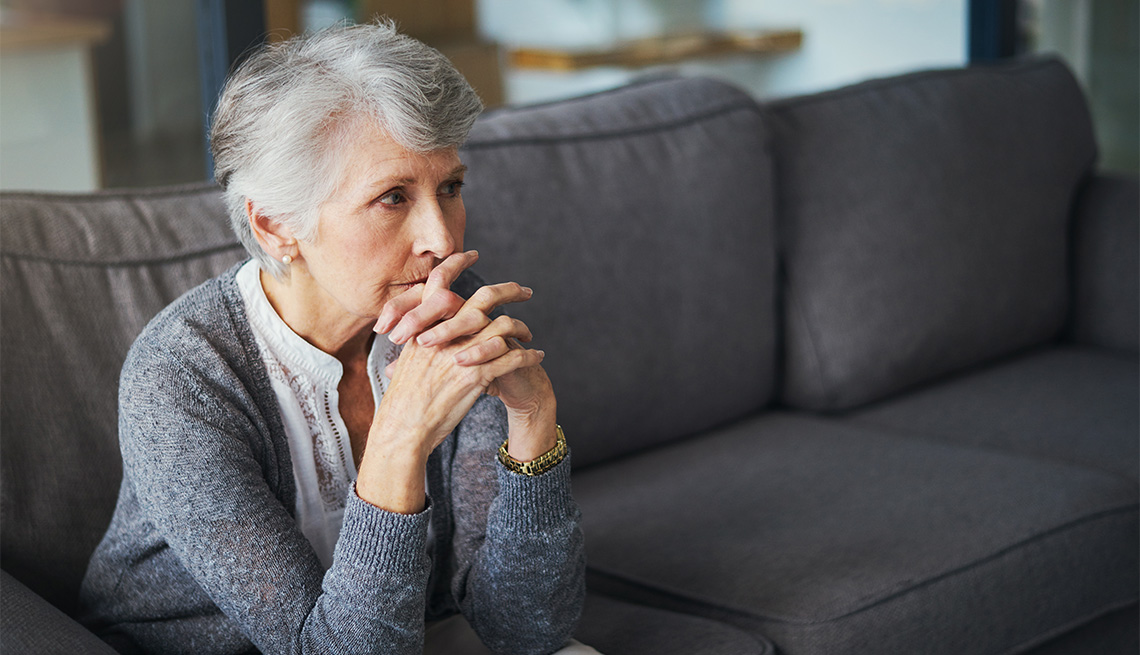How to Take Care of Your Mental Health
- Select a language for the TTS:
- UK English Female
- UK English Male
- US English Female
- US English Male
- Australian Female
- Australian Male
- Language selected: (auto detect) - EN

Play all audios:

Tinpixels/Getty Image Facebook Twitter LinkedIn
As it upends normal life, COVID-19 is causing people to feel anxious, angry, frightened, frustrated and sad. All these feelings are normal during this pandemic, mental health experts say.
But as the crisis stretches on, the prolonged isolation, financial uncertainty and fears about the coronavirus will almost inevitably trigger a spike in mental health issues such as
depression, anxiety, insomnia and substance abuse.
Notably, nearly half of Americans said the COVID-19 pandemic is already harming their mental health, in a recent poll by the Kaiser Family Foundation. And almost 1 in 5 said it has had a
“major impact” on their mental health.
To boost your overall outlook, psychologists recommend getting plenty of sleep, eating balanced meals, going outside if you can and staying physically active. Self-compassion is also
important; acknowledging your feelings can help you cope in a healthy way.
AARP asked psychologists for tips on how to handle specific mental health challenges during this stressful time.
"I can't stop worrying about COVID-19.”If anxiety about the virus is dominating your thoughts, your first step is to reduce your exposure to news and social media. Psychologists agree that a constant cycle of negative headlines
is linked to anxiety and stress.
"News puts your brain on alert, even if you don't realize it,” says Jameca Woody Falconer, a licensed psychologist and faculty member atWebster University in St. Louis, Missouri. “I have
patients who watch the news around the clock, flipping from channel to channel, and it just amps up their cortisol levels.”
Consider limiting yourself to 30 minutes a day or just checking the news once in the morning and once in the evening.
Falconer also recommends connecting regularly with friends and family members by video chat or phone. “When you're alone with your thoughts, your anxiety can spiral,” she says.
If your anxiety is interrupting your ability to function or to perform ordinary activities like paying bills or showering, that's a sign it's time to consider professional help.
Most therapists across the country are offering virtual sessions, and Medicare and many private insurers have expanded their coverage to include teletherapy. Ask your primary care provider
for a referral, or use the national Crisis Text Line. Texting HOME to 741741 connects you to trained volunteer crisis counselors who reply quickly and are available 24/7.
"I'm so anxiousI can't sleep.”
Psychologists say fears about the virus are keeping many of their patients up at night. “It's a big deal,” says Kristin Daley, a clinical psychologist and sleep expert at BASE Cognitive
Behavioral Therapy in Charlotte, North Carolina.
Worry and fear release fight-or-flight hormones in your brain that make you feel agitated and hyper-vigilant, she explains, making it harder for you to enter the restful state needed for
sleep.
If you can't get your brain to turn off at night, Daley suggests setting aside some “worry time” each day, when you write down your concerns. “After dinner take 10 minutes where you just
bullet-point everything your head is talking to you about. Say, ‘OK, brain, what have you got for me?’ “